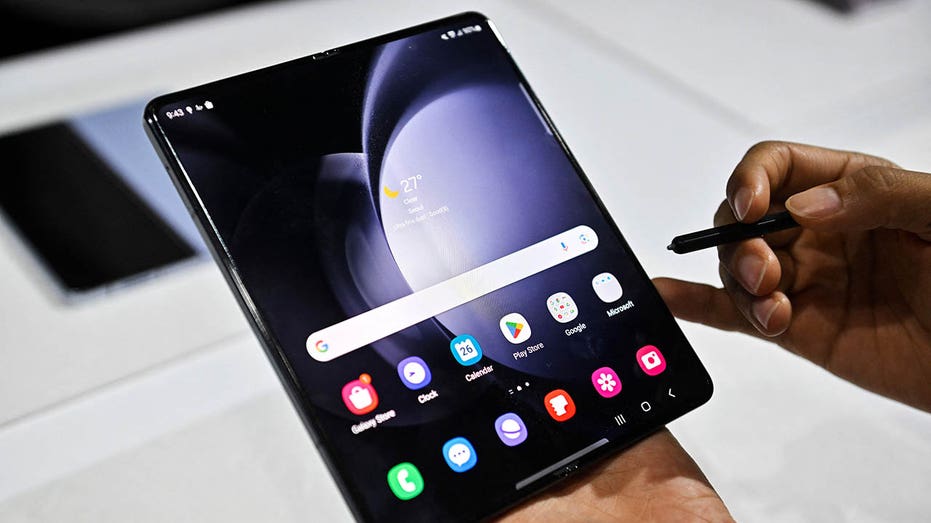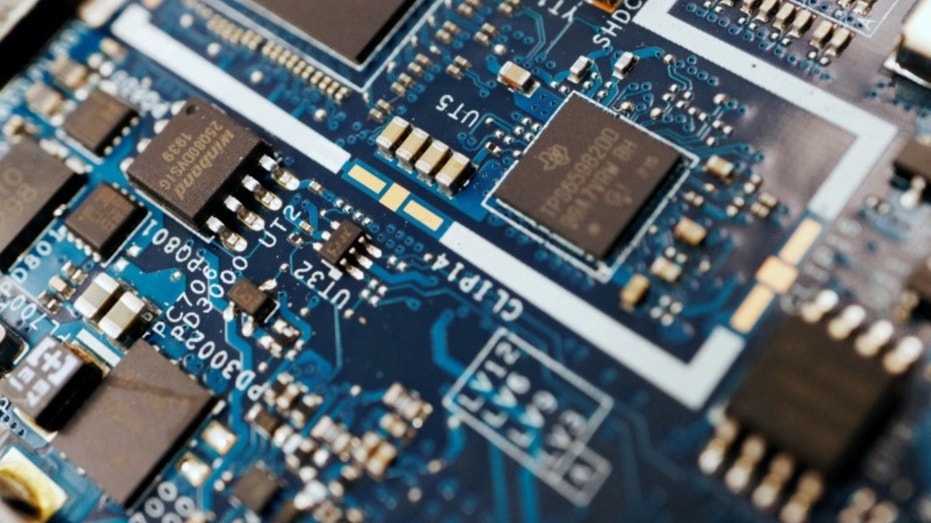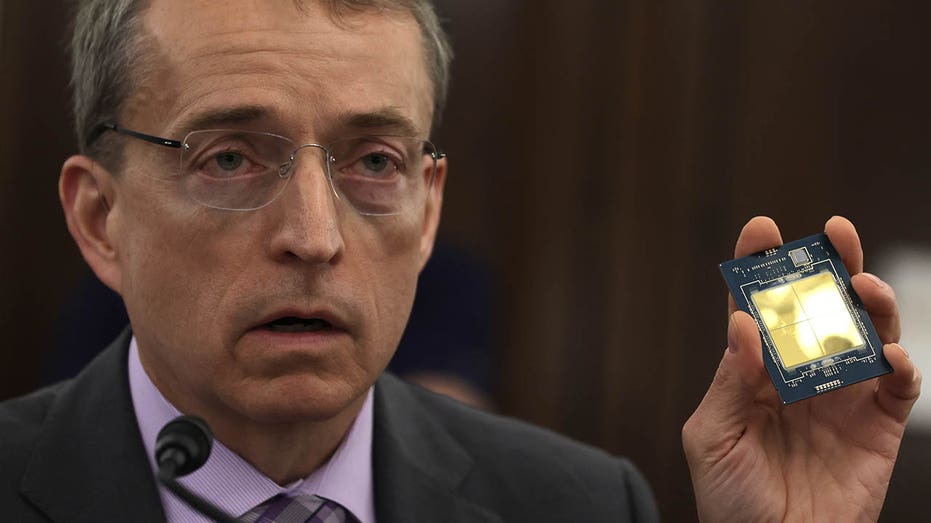Semiconductor supply glut improving; demand outside AI is low
China reopening did not revive smartphone market
Semiconductors are powering every area of tech: Beth Kindig
I/O Fund Official Technology Analyst Beth Kindig breaks down the technology sector on 'Making Money.'
Global chipmakers like Intel and Samsung are seeing an end to supply surplus for semiconductors, while demand expectations from customers outside the AI industry remains low.
The chip market has shrunk in 2023 for smartphones, PCs and data centers, as corporate customers and consumers curtail spending in an economy weakened by inflation and rising interest rates, creating an unprecedented oversupply of commodity chips.
SAMSUNG SHOWS OFF LATEST FOLDABLE SMARTPHONE, CHALLENGING APPLE
The oversupply resulted in a combined record of 15.2 trillion won ($12 billion) first-half operating loss for the world's two largest memory chipmakers, Samsung and SK Hynix.

A promoter shows a Samsung Galaxy Z Fold5 phone during the Samsung Galaxy Unpacked 2023 event in Seoul on July 26, 2023. (Photo by Jung Yeon-je / AFP) (Photo by JUNG YEON-JE/AFP via Getty Images)
The glut is beginning to ease amid production cuts and a 11% decline in PC shipments over the June quarter compared to a 30% slump in each of the previous two quarters, data from tech analysts Canalys showed.
INTEL SHARES GAIN 7% AS CHIPMAKER RETURNS TO PROFITABILITY
The smartphone market is also on the rise, with cellphone shipments falling 8% in the June quarter, versus 14% in the first quarter, according to research firm Counterpoint.
| Ticker | Security | Last | Change | Change % |
|---|---|---|---|---|
| INTC | INTEL CORP. | 50.59 | +2.35 | +4.87% |
| SSNLF | SAMSUNG ELECTRONICS CO. LTD. | 65.21 | +24.61 | +60.62% |
"Demand is recovering very gradually," Woohyun Kim, chief financial officer at SK Hynix, said on an earnings call this week.

Semiconductor chips are seen on a circuit board of a computer in this illustration picture taken February 25, 2022. Reuters/Florence Lo/Illustration/File Photo (Reuters/Florence Lo/Illustration / Reuters Photos)
"The recent improvement in PC shipments has been mainly led by promotions and low-end models, meaning it provided limited impact on chip demand recovery," he added.
APPLE CEO TIM COOK TELLS PARENTS 'KIDS ARE BORN DIGITAL,' NEED SCREEN TIME LIMITS
Despite chip demand increases to support generative AI as platforms like ChatGPT are launched, the sector only makes up a small portion of overall demand while crimping corporate spending on servers.

The Welcome to ChatGPT lettering of the US company OpenAI can be seen on a computer screen. ((Photo by Silas Stein/picture alliance via Getty Images) / Getty Images)
Meanwhile, Intel CEO Pat Gelsinger said on Thursday an inventory glut in server central processing units (CPUs) will persist until the second half of the year and that data center chip sales will decline modestly in the third quarter before recovering in the fourth quarter.

WASHINGTON, DC - MARCH 23: CEO of Intel Corporation Pat Gelsinger holds up a semiconductor as he testifies during a hearing before Senate Committee on Commerce, Science, and Transportation at Russell Senate Office Building on Capitol Hill on March 23
China, the world’s biggest chip buyer, is now reducing its overall overlook, both Samsung and SK Hynix said China's reopening did not invigorate the smartphone market and they were prolonging production cuts of NAND memory chips, which are used in smartphones to store digital data.
RUSSIAN IPHONE COMPETITOR AYYA SELLS FEWER THAN 1,000 UNITS
Lam CEO Tim Archer said on a conference call with analysts said, "Advanced AI servers have significantly higher leading-edge logic, memory and storage content versus traditional servers, and every incremental 1% penetration of AI servers and data centers is expected to drive $1 billion to $1.5 billion of additional (chip equipment) investment."
Ohio State works to address semiconductor worker shortage
With an investment from Intel, Ohio State University is taking proactive steps to address the anticipated shortage of skilled workers in the semiconductor industry.
GET FOX BUSINESS ON THE GO BY CLICKING HERE
Chipmakers are also increasing production of the high-end chips used to support AI related chips.
Reuters contributed to this report.






















